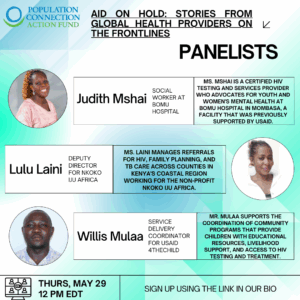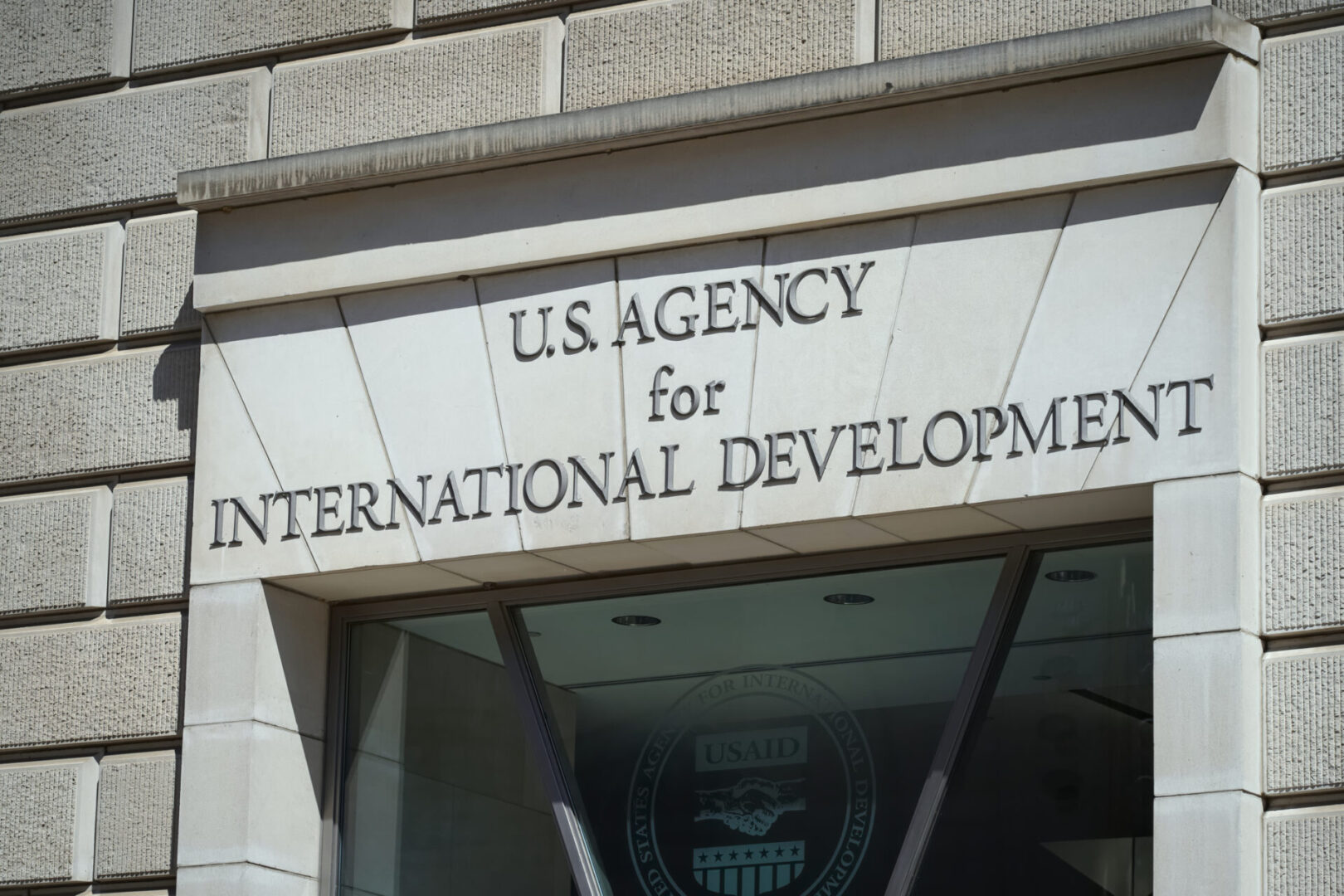Aid on Hold: Stories From Global Health Providers on the Frontlines
Written by Rory Reedy-Solano, Stanback Field & Outreach Fellow | Published: June 5, 2025
 At the beginning of his second term, the Trump administration issued an executive order halting all foreign aid and assistance for a 90-day review. Since then, the United States Agency for International Development (USAID), the lead foreign assistance agency within the federal government, has been dissolved, with thousands of employees terminated and contracts with implementing partners canceled. The Trump administration continues to target foreign aid initiatives, with his most recent efforts attempting to codify the cuts in a legislative package to Congress.
At the beginning of his second term, the Trump administration issued an executive order halting all foreign aid and assistance for a 90-day review. Since then, the United States Agency for International Development (USAID), the lead foreign assistance agency within the federal government, has been dissolved, with thousands of employees terminated and contracts with implementing partners canceled. The Trump administration continues to target foreign aid initiatives, with his most recent efforts attempting to codify the cuts in a legislative package to Congress.
On Thursday, May 29, Population Connection Action Fund hosted Aid on Hold: Stories From Global Health Providers on the Frontlines, a powerful webinar exploring the international implications of Trump’s foreign aid “freeze.”
Panelists Willis Mulaa, Judith Mshai, and Lulu Laini shared powerful stories that, while distinct, echoed a shared truth: these programs have helped communities combat the HIV/AIDS epidemic, provided family planning services, and implemented violence prevention and mental health programs.
Communities have lost staff, access to medications and health records, and critical reproductive health services, leaving the most vulnerable without care. These programs are essential to community health, but Trump has forced providers to end their projects and shut their doors.
As a community social psychologist, Ms. Mshai is a certified HIV Testing and Services provider who advocates for youth and women’s mental health at Bomu Hospital in Mombasa, Kenya, a facility previously supported by USAID. After 10 years of working there, she described how the freeze blindsided both health care workers and community members, disrupting services many relied on.
Similarly, Mr. Mulaa, the Service Delivery Coordinator for USAID 4TheChild, experienced a dramatic shift in program delivery. His team supports the coordination of community programs that provide children with educational resources, livelihood support, and access to HIV testing and treatment. The halt in funding led to widespread layoffs and left over 5,000 children without essential aid, including scholarships and health programs.
Ms. Laini manages referrals for HIV, family planning, and TB care across counties in Kenya’s coastal region, working for the non-profit Nkoko Iju Africa. She explained how these funding cuts affect access to health care in Kenya.
The funding cut also severely impacted workers, many of whom are members of marginalized communities, such as former sex workers. “We are training our mobilizers, peer educators, and outreach workers and encouraging economic empowerment so they can have the skills in case something like this happens again… and walk away with something [tangible],” said Laini.
The United States is normally the largest donor to global health programs, and works closely with other organizations, like the United Nations Population Fund (UNFPA), to support family planning services, provide financial assistance to country health systems, and collaborate with international non-governmental organizations. In the last fiscal year, Congress appropriated over $600 million for global funding and reproductive health programs. With the rollout of more cuts, the gap in access to family planning services around the world will be nearly impossible to fill without U.S. support.
Despite these challenges, community leaders like Ms. Mshai, Mr. Mulaa, and Ms. Laini have found new ways to support the community by leveraging new resources and collaborative efforts, such as working with their local government, fundraising, and financial planning to ensure the community’s health remains a priority.

